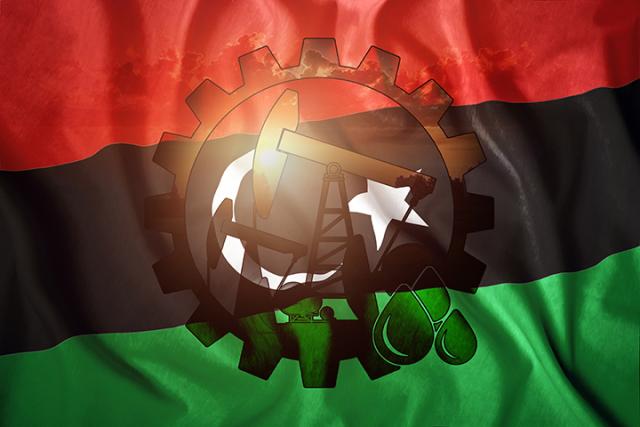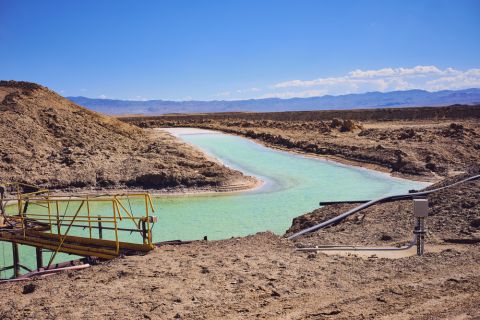
Editor’s note: Opinions of Hart Energy contributors are their own.
The saga surrounding Libya’s biggest oilfield, El-Sharara, continues as the lack of security and political instability in the country casts a shadow on the overall oil production in the war-torn country.
El-Sharara was discovered in 1980 with a production capacity of 400,000 barrel of oil per day (bbl/d) and proven reserve of nearly 3 Bbbl. Prior the force majeure imposed on in December 2018, El-Sharara, which is run by Akakus, a joint venture between the NOC, Spanish company Repsol, France's Total and Austria's OMV, production neared 300,000 bbl/d.
It is located in the remote south where rival tribes have clashed since Muammar Gaddafi was ousted eight years ago. Libya's National Oil Corporation (NOC) reported that the shutdown of the oilfield will result in a site production loss of 315,000bbl/d, with an additional loss of 73,000 barrels at El-Feel due to its dependence on Sharara for electricity supply. Losses resulted from the closure has exceeded US$1 billion, according to the company.
Libya's oil infrastructure is often targeted by protests, shutdowns and strikes by brigades of former rebels who refuse to disarm or recognize the state's authority. The field was taken over on Dec. 8 by groups of tribesmen, armed protesters and state guards demanding salary payments and development funds.
“The South needs effective government. This is where the international community can play a constructive role—building the Libyan government’s capacity to administer the South through impactful economic and social programs,” Mustafa Sanalla, the chairman of NOC Libya said in London at Chatham House.
The drop is the latest blow to the oil-rich, but strife-hit North African nation, where the oil sector accounts for 70% of GDP, 95% of state revenues and as much as 98% of exports. The closure of the field is not the first time, as the field was closed from February 2014 until the end of 2016.
In November 2014, an armed militia affiliated with Zintan closed the oil pipeline, in Al-Rayana city, which connects El-Sharara field with Al-Zawiya port as a reaction to the takeover of the field by Libya Dawn Operation. This has led to almost US$10 billion of money were lost due to the shutdown of the pipeline connecting El-Sharara oil field with Al-Zawiya port.
The crisis in El-Sharara had been complicated by the launch of an international counter-terrorism mission, which has expanded into an attempt to seize control of territory, including potentially, national oil infrastructure. “A mixed force might provide a solution within a negotiated security framework. With a robust security framework in place, managed by NOC Libya will be a much more reliable supplier to the global market and a much more attractive destination for oil and gas investment,” Sanalla said.
Ensuring the continuity of production from the field become out of the control of NOC Libya, as the overall instability in the country, is casting shadow on the oil sector. “We cannot countenance the use of violence against our employees. With some reluctance we have concluded that the preferred solution is a professional PFG force managed by NOC,” Sanalla said.
Sanalla also stressed the importance of adherence to the rule of law in Libya and maintenance of United Nations Security Council resolutions. “To maintain this recovery, the integrity of the Libyan oil and gas sector and NOC’s indivisible and unifying role as the sole steward of Libya’s national resources must be preserved.”
He also said that he wants to set up a national force armed with surveillance to protect the country’s petroleum assets after repeated seizures of oil installations by militias, which would require an annual budget of tens of millions of dollars and be under the control of the UN-recognized government. But the force could include members of the Libyan National Army (LNA) headed by field marshal Khalifa Haftar, the dominant figure in Libya’s east. He also said that the force would exclude anyone involved in previous attacks on oil installations.
One of the solutions that Sanalla talked about is the installation of digital control equipment, which should start with a pilot project in El-Sharara once it was secured. “It would rely on radars, cameras drones and fast satellite communications.” Sand barriers and tunnels would also be set up to protect the oil sites.
While NOC Libya is working hard to find potential solutions to ensure safety of its operations and resume productions from fields, its efforts will not pay off unless a national reconciliation between all parties involved in the struggle is achieve away from foreign agendas that have been fueling the war in the country.
Recommended Reading
CorEnergy Infrastructure to Reorganize in Pre-packaged Bankruptcy
2024-02-26 - CorEnergy, coming off a January sale of its MoGas and Omega pipeline and gathering systems, filed for bankruptcy protect after reaching an agreement with most of its debtors.
BP Restructures, Reduces Executive Team to 10
2024-04-18 - BP said the organizational changes will reduce duplication and reporting line complexity.
APA Shuffles Leadership Following Callon Acquisition
2024-04-09 - APA CEO John J. Christmann said the changes will structure leadership to better align with the company’s “evolving” business needs.
M4E Lithium Closes Funding for Brazilian Lithium Exploration
2024-03-15 - M4E’s financing package includes an equity investment, a royalty purchase and an option for a strategic offtake agreement.
Jerry Jones Invests Another $100MM in Comstock Resources
2024-03-20 - Dallas Cowboys owner and Comstock Resources majority shareholder Jerry Jones is investing another $100 million in the company.






